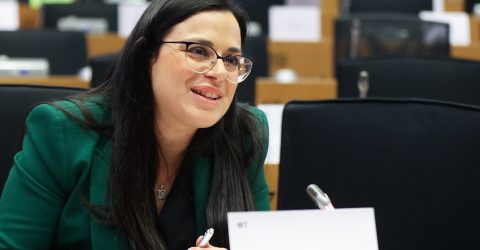Looking ahead is where our focus should be. The
past year has been what it has been, with some circumstances bringing to light
the need to be more prepared, and the need to help out certain sectors. The
past year has, moreover, been an eye-opener for all of us — what is of the
utmost importance is to believe meaningfully, as we head into the coming
months, that the future is promising and that we will be reaching our common
goals.
COVID has changed the world as we knew it — with
the word pandemic becoming a household word — and defined the year 2020 — in
the way its effects reached everyone, the world over.
The pandemic has changed how we work, learn and
interact, as social distancing guidelines have led to a more virtual existence,
both personally and professionally. Unsurprisingly, the pandemic has triggered
a wave of mental health issues, of stress for families who have had to deal
with remote learning situations for school-aged children whilst, in certain
circumstances, also teleworking. But it has also generated a major world-wide
economic crisis, put the travel industry through an unprecedented low, and
created havoc among small and medium sized enterprises.
Moreover the pandemic has brought about a new
reality: we now know that we can no longer afford to put policy sectors for our
citizens in different compartments. Emerging out of this pandemic in a wholesome way
means we have to strengthen a holistic policy outlook that sees to the common
effects and requirements across sectors as much as the specific needs of
sectors themselves.
Social, moral, psychological and physical health
support, need to become more attuned to the needs that have arisen with
Covid-19 or been exacerbated by it. Access to social support services needs to
become more readily and easily available to people of all ages and abilities,
and more personalised to the specific requirements of their lives.
This ties in with the ultimate goal of a sound
economy –- a better quality of life for each and every one of us. As we
hopefully begin to move towards a post-Covid era, a better quality of life and
a better standard of living will mean — perhaps more than ever before — having
as accessible and inclusive a social support system as possible for our citizens.
Notwithstanding COVID times, a lot has been
achieved last year, with a promise to strengthen these achievements and improve
wherever is necessary.
The past year was for me a hive of activity,
with an ongoing commitment towards SMEs and their urgent needs in this moment of
difficulty for them, their employees and their families.
I have visited several workplaces, taking the
occasion to discuss and understand at first-hand the experience of this sector
and what our businesses have been through in the past year. One thing certainly
stood out — that apart from a moral support, this sector needs material support
which translates to fiscal, financial backing, other support and the
implementation of more incentives and channeling of funds into reviving the
sector.
Last year’s final Plenary session of the European Parliament
successfully voted in the Report on Europe’s Strategy for Small and
Medium-sized Enterprises that I led on behalf of the Socialist and Democrat
group in the EP.
The Report was voted in with an absolute
majority of 69 out of 73 votes. I see this not just as a personal achievement,
but also as an endorsement for what this sector needs with urgency — in the
expectation that this will set the ball rolling towards further financial and
moral support for our SMEs.
Undoubtedly, the first batch of Covid-19 vaccines arrived in Malta last
December made for a ‘historic day’ for our country. Now that the vaccination rate is
picking up, we need to further not only the financial support but also a much-needed
injection of morale to help our business to regenerate their operations, and
hence assisting their employees and their families to improve their own current
situation.
The realities of work and commitments are
obviously spread across several sectors. The effort to change aspects of
political and civil culture continues at a steady pace. It is a pleasure to be
able to follow the national debate on the Gender Representation Reform bill
after having followed this important initiative from its early days as a member
of the Technical Committee on equal representation measures in Parliament.
Strengthening the role of women in our society is also a means of strengthening
confidence and moral support for our citizens — and this bill will certainly
help in affording more confidence for women (being the underrepresented sex at
the moment) to participate and assert themselves and their ideas on the
national political agenda.
As a Member of the European Parliament, my work
also extends to this area that I feel is highly important. I believe there is
also a need for greater awareness and commitment to it — both in terms of
strengthening women’s role in society and the sustained effort to bring about
more equality.
An area I am working on at the moment is the
distribution of European Union funds in this regard — with the aim that
precisely that the resources of the European Union come to be invested more
wisely and sensitively towards the pressing requirements of gender equality and
equity. If done effectively, European funds can truly contribute to overcoming
the barriers that are currently hampering gender balance across the various
sectors of our societies and economies, not least their workforce.
All of this puts a responsibility on us MEPs —
as policy-makers, we need to ensure that our work leads to real equality
between women, men and indeed across the entire gender spectrum, in all spheres
of life. This must be done through synergised work across all fora, with a
focus on educational, informative, and dialogue-based initiatives that result
in tangible and also concrete action.
Yes, we will look ahead — because the goals we
are working for deserve, now more than ever, to achieve their fruition and see
our societies pull through and overcome this moment.





